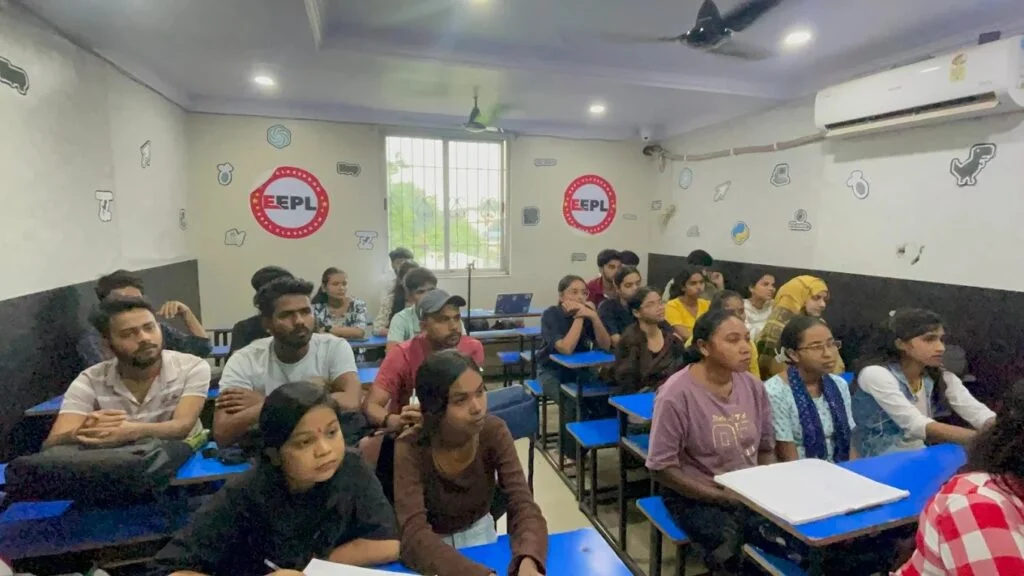Understanding Exam Fear
Exam fear is a prevalent issue faced by students across various educational levels. It often stems from several sources, including the pressure to perform well, the fear of failure, and pervasive self-doubt. These pressures can be both internal and external, such as the expectations set by parents, teachers, or peers, as well as personal goals for academic achievement. This combination of influences can create a perfect storm of anxiety, leading students to experience heightened levels of stress as exam dates approach.
The manifestations of exam fear can differ significantly among students, with some experiencing physical symptoms such as increased heart rate, sweating, or nausea, while others may succumb to mental blocks or negative thoughts. For many, the fear of failure looms large, which can paralyze their ability to study effectively or approach exams with a clear mind. This psychological burden often results in a vicious cycle: the more anxious a student becomes, the more likely they are to underperform during exams, reinforcing their fears and doubts. Consequently, their overall morale diminishes, making it challenging to stay motivated or focused.
Furthermore, self-doubt is a critical factor contributing to exam-related anxiety. When students question their abilities or knowledge, it can lead to procrastination or avoidance behaviors, which only exacerbates their fears. Understanding these underlying causes is crucial for students and educators alike. By identifying the sources of exam anxiety, students can begin to develop targeted coping strategies that address their individual concerns and fears. This foundational understanding lays the groundwork for fostering resilience and improving performance under pressure.
Preparation Techniques to Build Confidence
Effective preparation is paramount in alleviating exam-related fears and enhancing self-assurance among students. One of the most useful strategies is the creation of a well-structured study schedule. By allocating specific time slots for each subject or topic, students can ensure that they cover all necessary material well in advance of the exam. This systematic approach not only organizes study efforts but also cultivates a sense of control and readiness, which is crucial for building confidence.
Utilizing active learning strategies can further support students in this preparation phase. These methods, such as summarizing information in one’s own words, teaching the material to peers, or engaging in discussions, tend to deepen understanding and retention of knowledge. When students actively engage with the material, they are likely to feel more competent and secure in their abilities, thereby quieting the anxiety common before exams.
Practicing past exam papers plays a significant role in boosting confidence as well. By familiarizing themselves with the format and style of questions they may encounter, students can reduce uncertainty, which is often a source of fear. Simulating exam conditions while practicing helps students develop time management skills and reduces the likelihood of surprises on exam day.
Furthermore, forming study groups fosters a supportive learning environment and can be incredibly beneficial in combating exam anxiety. Collaborative learning allows students to share insights, exchange tips, and clarify doubts, while also reinforcing their knowledge through teaching. This mutual support can lead to improved academic performance and a collective sense of preparedness.
Through consistent implementation of these preparation techniques, students can significantly build their confidence levels, paving the way for a calmer and more focused exam experience.

Mindfulness and Relaxation Strategies
Mindfulness and relaxation strategies are essential tools for managing anxiety, particularly during the stressful periods surrounding exams. These techniques not only help in significantly reducing feelings of nervousness but also enhance mental clarity and overall performance. Among the various methods available, deep breathing exercises, visualization, and meditation stand out as effective practices that students can incorporate into their routines.
Deep breathing exercises are a simple yet powerful technique that helps regulate the body’s stress responses. By concentrating on slow, deep breaths, students can activate the body’s relaxation response, which lowers heart rate and calms the mind. To perform this exercise, one can find a quiet place, sit comfortably, and inhale deeply through the nose, allowing the abdomen to expand. This should be followed by a slow exhalation through the mouth. Practicing this for several minutes can create a sense of tranquility and help clear the mind, making it easier to approach exam tasks with clarity.
More
Visualization is another effective strategy worth considering. It involves picturing oneself succeeding in an exam scenario, thereby creating a positive mental image associated with the test environment. By imagining successful outcomes, students can alleviate feelings of fear and build confidence. This technique not only aids in calming nerves but also enhances focus and motivation.
Meditation is a more extensive practice that involves training the mind to cultivate a state of awareness and presence. Even short sessions of meditation, whether through guided instructions or silent contemplation, can significantly lower anxiety levels. Incorporating mindfulness meditation into a daily routine allows students to develop better emotional regulation over time, which aids substantially during high-pressure situations such as exams.
Incorporating mindfulness and relaxation techniques into one’s study routine can markedly transform the exam preparation process. By mastering these techniques, students not only reduce anxiety but also enhance their focus and overall performance in exams.
Positive Mindset and Self-Talk
Exam fear is a common experience that can significantly impede performance and hinder personal growth. One effective method to combat this anxiety is by cultivating a positive mindset and engaging in constructive self-talk. The essence of fostering a positive outlook lies in the ability to replace negative thoughts with empowering affirmations that reinforce one’s ability to succeed. It is crucial to recognize the damaging effects of negative self-talk, which can lead to decreased confidence and heightened stress. Instead, adopting a mindset focused on positivity can enhance motivation and resilience.
In order to foster a positive mindset, students should first acknowledge their strengths and previous accomplishments. By reflecting on past successes, one can build a solid foundation for self-belief. Creating a list of personal achievements can serve as a reminder of capabilities, boosting overall self-esteem. Furthermore, positive affirmations play a vital role in this process. Simple phrases, such as “I am prepared” or “I am capable of success,” can be repeated before and during exam preparations to help replace negativity with confidence.
Moreover, self-talk can be a formidable tool in transforming the way students perceive challenges. By consciously directing their internal dialogue toward constructive feedback, individuals can counter self-doubt and promote a sense of calm. This practice involves recognizing negative thought patterns and actively reframing them into positive ones. For example, instead of thinking, “I will fail,” a student can rephrase this to, “I am prepared and ready to do my best.” In doing so, they not only improve their mental state but also equip themselves with a strategy to better handle exam pressure.
Conclusion
Incorporating these techniques into daily routines can gradually foster a more positive mindset, ultimately enhancing students’ ability to cope with examination challenges. By embracing a positive transformative journey, students will find themselves better prepared to tackle their fears and realize their potential.
Read Our Latest Blog
Best Competitive Exams After Class 12 With Preparation Tips
Phone Number: +91-7488456170
Email ID: abhishek@eepl.me
Our Platforms:
Digilearn Cloud
EEPL Test
Live Emancipation
Follow Us on Social Media:
Instagram – EEPL Classroom
Facebook – EEPL Classroom
Stay connected and keep learning with EEPL Classroom !










